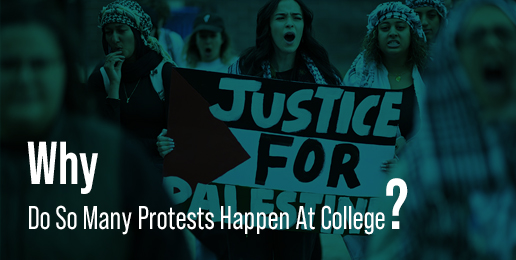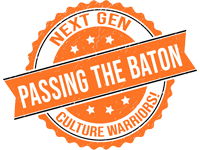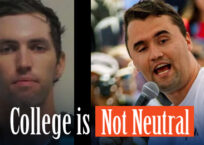
The pro-Palestinian organization Students for Justice in Palestine announced Thursday, October 12 to be a “Day of Resistance” and called for a coordinated series of protests on college campuses to support the Hamas attacks on Israel and speak out against “Zionism.”

And what a day it was.
Demonstrations and protests broke out between pro-Israeli and pro-Palestinian demonstrators—some of which grew quite verbally abusive—at such prominent universities across the U.S. as UCLA, the University of Michigan, Columbia University, UNC Chapel Hill, and the University of Washington.
A Seattle journalist reported that at the University of Washington, pro-Israeli demonstrators walked through a pro-Palestinian protest calling Hamas a terrorist organization, and then pro-Palestinian activists began shouting slurs at a local radio personality and chanting Palestinian slogans. As another journalist reported, the protests were enough to cause a Jewish student to burst into tears, asking an administrator,
“They want us dead, how are you allowing this?”
To those who have a few decades under their belt already, this basic scene may seem familiar.
From the campus Vietnam protests during the 1960’s to the Black Lives Matter protests of the last decade, many of society’s biggest demonstrations tend to involve students or take place on university campuses. The pattern is simple:
A shocking political event happens—possibly even on another continent—and American college students often mobilize to protest.
While there’s much to be said about the current situation in the Middle East and the student groups supporting the militant Hamas organization, I’d like to step back for a second and ask a big-picture question:
Why do so many protests happen among university students on college campuses?
Of all the demographics who could be demonstrating for their political viewpoint, why is it often the university crowd? As a college student myself, a few thoughts come to mind.
First, college students are usually more immature than their older selves.
In addition to basic physiological characteristics—hormone levels, brain development, etc.—most of us students lack the serious responsibilities and family obligations that tend to force a person to grow up quickly. Not only are college students naturally more immature, but the university environment helps us stay this way.
While the professors are a few people on campus with a bit more gray hair and wisdom, but the population is overwhelmingly students in their late teens and early twenties. Living, eating, partying and studying on campus, college students essentially live within a bubble made up of their own age bracket.
And what’s more, I think our society expects them to be somewhat immature: somehow, the “well, they’re students” excuse seems to cover more unruliness in a student protest than would be acceptable with other protestors.
Second, college students seem to be more easily persuaded than older adults.
We seem instinctively programmed to reject what our parents taught us and find something more enlightening while we’re off at school. Combine that with the lack of life experience that characterizes all young generations—and the lack of critical thinking that particularly characterizes ours—and we can see why college students are particularly easy to mislead.
Plus, since the contemporary university environment tends to favor liberal voices and ignore or insult conservative viewpoints, most student populations tend to be more or less indoctrinated into the progressive worldview.
Third, college students seem to be more easily impassioned compared to their older counterparts.
Tempered wisely, this is admirable; unleashed or manipulated, it can be very destructive.
Fourth and finally, a university brings thousands of such college students together “under the same roof”—forming a gigantic, excitable, persuadable and immature community of twenty-somethings.
All this to say, not all student protests advocate twisted causes or grow unruly and violent, and some have even been very noble—think of the Tiananmen Square student protest against the Chinese communist government in the 1980s. But there’s a reason that student protests have the sour reputation they do among many people, and this month’s protests are no exception.
If only there were a way to preserve the spark of youth in the university student population, but imbue that with a lot more maturity and critical thinking than we currently see!
These critiques of the contemporary university crowd should form important considerations for anyone looking at higher education.
For anyone looking at college in the near future, ask yourself these questions.
- Does my prospective school encourage students to be adults, or does it provide them with a bubble-like environment in which they are only surrounded by people just as immature as they?
- Does my prospective school encourage critical thinking, or does it avoid teaching students real wisdom?
- Does my prospective school encourage students to stand against groupthink, or does it mostly just promote a particular political viewpoint?
While schools that measure up to these standards are few and far between, college is a big enough choice that it’s worth the hunt.
























